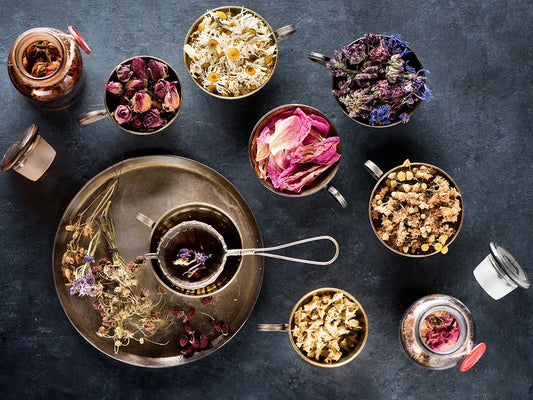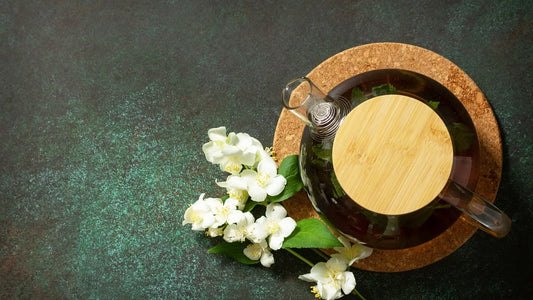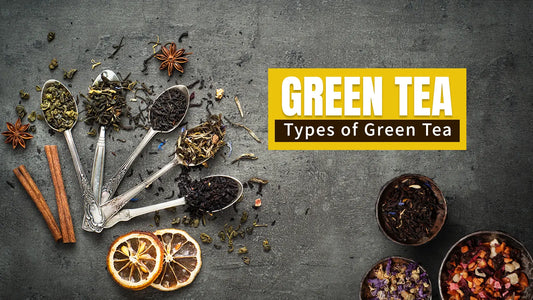Rose Tea: Everything You Need to Know
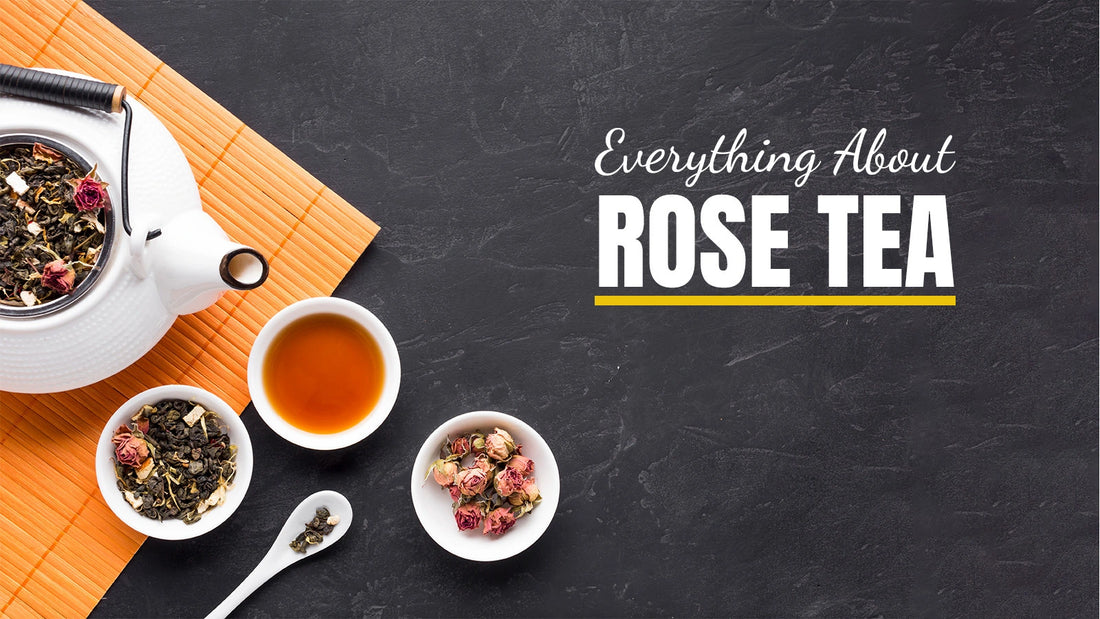
Imagine sipping on a cup of rose tea, its delicate floral notes intertwining with a naturally sweet and subtle fruity scent that captivates your senses. We know, rose tea's aroma can be very inviting!
Whether you serve it purely as a caffeine-free floral tea or blended with other teas, this beverage can provide you with a soothing effect.
If you’re seeking to add this to one of your collections, this article is your ultimate guide to rose tea from its types to its myriads of benefits.
What is Rose Tea?
Rose tea is a floral tea made from dried rose petals, buds, or fruits. Some commonly used roses are rosa damascena, rosa fallica, rosa rugosa, rosa canina, etc.
This floral tea has a delicate floral aroma, offering a distinct reminiscent of the scent of fresh roses. Its flavor profile is gently sweet with a hint of lightly tart or fruity undertone. However, the taste could vary according to its type.
Types of Rose Tea
Rose Bud Tea
As the name implies, rosebud tea consists of dried rose buds. It has a mild floral and sweet taste. When infused, it gives off a light golden color and intense rose fragrance and flavor.
Rose Petal Tea
Next, there’s rose petal tea that has only dried rose petals. Compared to the other rose tea, it has a slightly tart flavor.
Rosehip Tea
Rosehip tea is made using the fruit of the rose plant. The taste profile is comparatively more fruity and tart.
Blended Rose Tea
Blended rose teas are the mixture of several teas and dried rose buds, petals, or fruits. For Instance, it could be rose black tea, rose green tea, rose herbal tea, etc. Each kind of blended rose tea has its own distinct flavors with the rose fragrance.
Rose Tea Properties
Rose tea isn’t just an aromatic floral tea. It's packed with numerous nutrients that could potentially have a positive impact on your health.
According to published research, the chemical compounds found in each part of the rose plant are listed below.
- Rose petals: Terpenes, flavonoids, phenolic acids, tannins, polyphenols, carotenoids
- Hips: Vitamin C, vitamin E, fatty acids, carotenoids, flavonoids
- Buds: Flavonoids, terpenoids, catechins, gallic acids

How to make rose tea?
Usually, to savor the maximum flavor and aroma of rose tea, it’s infused in just hot water. But, why stop there?
We strongly encourage you to experiment with several brewing methods or ingredients to add a personal touch to your tea. Afterall, it’s the experience that makes your cup of tea more delightful, right?
You’ll Need:
- 10 fl oz of filtered water
- 1.5 to 2 teaspoons of loose-leaf rose tea. Or, 1 tea bag of rose tea.
- A kettle or saucepan
- A steeping cup
- 1 teaspoon of honey or sugar (optional)
Instructions:
- Pour the 10 fl oz water into the kettle or saucepan to boil it.
- Put loose-leaf rose tea or tea bags into your steeping cup.
- Now, pour the hot water over the rose tea.
- Let the rose tea steep for around 3 to 5 minutes.
- Discard the rose tea leaves. Pour the tea into a cup.
- Put the sweeteners into the tea. (optional)
In case you are looking for a burst of flavor and excitement, you may explore a variety of tantalizing recipes like rose bubble tea, rose milk tea, rose iced tea, and many more.
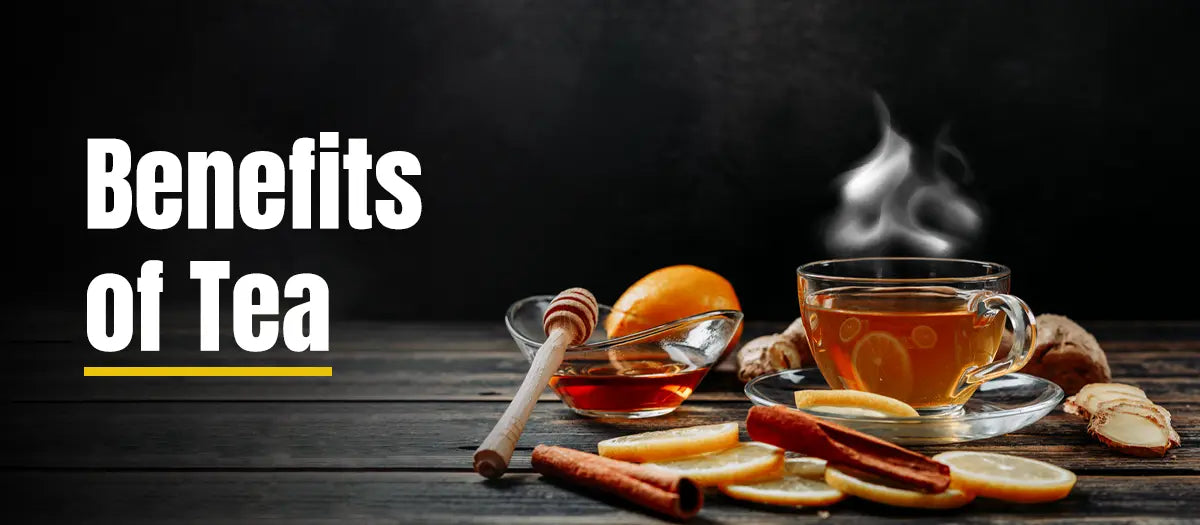
Benefits of Rose Tea
While rose tea is commonly appreciated for its aromatic floral fragrance and flavor, you may also get the potential health benefits due to its nutritional properties.
May Boost Digestive Health
Since rose tea has a mild laxative effect, it could help to soothe constipation or gastrointestinal discomfort. The tea’s anti-inflammatory attributes may help to alleviate bloating and indigestion, overall boosting your digestive health.
Could Help to Maintain Hormone
The presence of vitamin C and polyphenols in rose tea could support combating oxidative stress, leading to a relaxing effect. It might reduce the symptoms of hormonal imbalance like mood swings, irritability, and stress. For women dealing with menstrual discomfort, this fragrant brew could possibly provide much needed relief and support hormonal balance.
May Relieve Menstrual Pain
Rose tea’s nutrients, anti-inflammatory, and analgesic properties might help to relax the muscle, relieving the menstrual cramps. A study of randomized controlled trials found that women who drank rose tea experienced less menstrual distress and pain compared to others who didn’t. However, more samples and research might be required to strongly support this finding.
Might Improve Sleep Quality
Did you know that roses can be used as aromatherapy treatment?
Rose tea’s floral fragrance might provide you with a calming and sedative effect, helping to improve sleep. As it could also help with relaxing stress and anxiety, drinking rose tea before bed might promote better sleep quality.
May Promote Skin Health
You’re probably aware that rose extracts or essential oils are used in cosmetics for its potential benefits. But, did you know that sipping rose tea could also enhance your skincare routines? Packed with vitamin C, it might help with regulating skin elasticity and firmness, promoting healthier skin.

Rose Tea FAQs
Does rose tea have caffeine?
Pure herbal rose tea does not have caffeine as it's made with just the dried parts of rose plants. But, the blended rose tea variants such as black rose tea, green rose tea, etc contain caffeine.
How to prepare rose hips for tea?
First, take around 8 to 10 fresh rose hips. Slice the fruit into half and remove the seeds. Now, grind the rosehip in a mixer and steep them into hot water for around 10 to 20 minutes. Finally, strain and serve your tea. You may add sweeteners or flavors if you want.
How to dry rose petals for tea?
You may either air-dry or oven-dry the rose petals for tea. You could place the rose petals in a warm and dry area without direct sunlight. Or, place the rose petals on a baking sheet and put them into a preheated oven (100 to 120 degrees F) for around 1-2 hours.
What does rose milk tea taste like?
Rose milk tea offers a creamy, sweet, and floral taste with a strong rose fragrance. You may also get a subtle note of the tea used like black tea.

Conclusion
Ready to try out the rose tea now? You could start with our Danfe Tea’s 08° Rose black tea, made with refreshing rose flowers and robust loose-leaf black tea from the Himalayas. Its silky smooth texture with a slightly sweet rosy taste and floral scent of petals could be the perfect cup of tea to enjoy any time of the day.






